Buy Wine by the Case
183 products
- White Wine
- Chardonnay
- Sustainable, Vegan-Friendly
- Dry
- Medium Bodied
- 750ml
- 13.8% alc./vol
About the Winery
Leaning Post
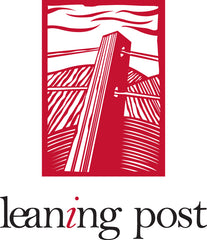
A leaning post is what you find at the beginning of a row of grapes, anchoring the wires that are the frame-work for growing grapevines. It is the beginning of an obsession to translate a time and place into liquid. Leaning Post wines take you to that beginning by finding small, unique plots of land in Niagara and putting them in bottle. Because after stripping away all the fancy buildings and high-tech equipment you are left with a place on this earth that grows wine unlike any other. When you taste that in a glass you just know it. Nadia and Ilya have had to rely on the support of family, friends and financial institutions to make the dream of owning a winery a reality. Leaning Post began as a virtual winery and is so proud to now have the quaint tasting room at 1491 Hwy 8 on their home property in Winona, Ontario.
Ilya and Nadia are the brains and passion behind Leaning Post Wines. It started with a dream to take unique, interesting single vineyard blocks in Niagara and turn them into distinctive, terroir driven wines. Nadia and Ilya first met in their hometown of Winnipeg, MB where their passion for wine and each other was born.
Ilya has been a winemaker in the Niagara Region for the last 17 vintages working at Daniel Lenko Estate Winery, Foreign Affair and now at Leaning Post Wines. Ilya is also a consulting winemaker at the Good Earth Winery. Ilya’s true passion in life is to make world renowned wines from Niagara that really showcase the distinct terroir that Niagara offers.
- Red Wine
- Cabernet Sauvignon
- Sustainable
- Dry
- Residual Sugar: 2.00 g/l
- Full Bodied
- 750ml
- 13.00% alc./vol
About the Winery
Vinos Baettig

Francisco Baettig and Carlos de Carlos have been friends for more than 20 years and share a passion for high-quality wines that are genuine and connected to the land where they are made.
"A promising project in a wine region that is the future of high-quality Chilean wines" - Patricio Tapia, Descorchados
Press Reviews
James Suckling
96 Points - Zekun Shuai, Senior Editor
Superb depth and freshness, with black olives, mussel shells, tea leaves and a touch of cocoa powder. Full-bodied but really fresh and powerful, with tons of grape-skin tannins that remind me of Barolo--austere, almost a bit rustic, but so fresh. Extremely long and firm. Unique freshness and structure. Cabernet sauvignon grafted onto 100-year-old pais 60 years ago. Granitic soils. Dry-farmed. It spent 15 months aging in French oak barrels. Very low ph of 3.38. Drink from 2025.
Vinous Media
96 Points - Joaquin Hidalgo
The 2022 Cabernet Sauvignon Los Padrinos originates from an old País vineyard in Coronel de Maule that was grafted with Cabernet 60 years ago. Aged for 15 months in French oak barrels, this black-fruited wine reveals balsamic aromas layered over notes of menthol and cassis. Dry, taut and compact, it presents a contrast between richness and tension, showcasing concentrated flavors and a fine-grained tannin texture. This is one worth keeping an eye on. Drinking window: 2026 - 2038
- Red Wine
- Cabernet Sauvignon
- Sustainable
- Dry
- Residual Sugar: 2.00 g/l
- Full Bodied
- 750ml
- 14.00% alc./vol
About the Winery
Vinos Baettig

Francisco Baettig and Carlos de Carlos have been friends for more than 20 years and share a passion for high-quality wines that are genuine and connected to the land where they are made.
"A promising project in a wine region that is the future of high-quality Chilean wines" - Patricio Tapia, Descorchados
Press Reviews
Decanter Magazine
96 Points - Amanda Barnes
The winemaker that put Viñedo Chadwick on the map now lends his elegant touch to Maule. Crushed raspberries meddled with fresh herbs and wildflowers makes this one of the most seductive Chilean Cabernet Sauvignons. Verve, tenacity and a thrilling spine of fine tannins hint at the ageing capacity of this exciting debut.
Vinous Media
94 Points - Joaquin Hidalgo
From the secano interior dry farming region in Maule was made with grapes from 80-year-old Pais vines grafted with Cabernet and aged for 10 months in 20% new oak. Purple with a ruby sheen. The expressive nose offers fresh black currant and plum plus hints of spice, gentle notes from the aging process, cigar box and hints of violet. In the mouth, it is delicate and energetic with refined tannins and precise, characterful grip. The juicy, rich flavours are shored up by the freshness. A nuanced, energetic wine. Drinking window 2022-2030
- White Wine
- Chardonnay
- Sustainable, Volcanic
- Dry
- Residual Sugar: 2.00 g/l
- Medium Bodied
- 750ml
- 13.50% alc./vol
About the Winery
Vinos Baettig

Francisco Baettig and Carlos de Carlos have been friends for more than 20 years and share a passion for high-quality wines that are genuine and connected to the land where they are made.
"A promising project in a wine region that is the future of high-quality Chilean wines" - Patricio Tapia, Descorchados
Press Reviews
Wineanorak Global Wine Journal
94 Points - Jamie Goode
Complex but still fresh with some toast and honey, as well as ripe lemon and melon fruit with some orange peel character and a touch of hazelnut. Lovely depth and intensity here with nice bright acidity on the finish. This is evolving in nice ways.
- White Wine
- Chardonnay
- Sustainable, Volcanic
- Dry
- Residual Sugar: 2.00 g/l
- Medium Bodied
- 750ml
- 13.50% alc./vol
About the Winery
Vinos Baettig

Francisco Baettig and Carlos de Carlos have been friends for more than 20 years and share a passion for high-quality wines that are genuine and connected to the land where they are made.
"A promising project in a wine region that is the future of high-quality Chilean wines" - Patricio Tapia, Descorchados
Press Reviews
James Suckling
98 Points - Zekun Shuai, Senior Editor
Pure mineral notes but a lot of depth here, with flinty oyster shells, crushed rock, lemon zest and a hint of cream. Broad but pure on the palate, driven by a bright streak of saline acidity. Really gastronomic and serious, with a full body but mineral water-like purity at the end. Another sensational Los Primos. According to winemaker Francisco Baettig, 2022 is moderately cool in Traiguén. A small production due to the frost. Picked around April 10. Thirteen months’ aging in 300- to 400-liter barrels, of which 37% is new.
Vinous Media
97 Points - Joaquín Hidalgo
The 2022 Chardonnay Viñedo Los Primos originates from Traiguén in the Araucanía region. Aged for 13 months in French oak barrels (37% new), it displays a green colour with a yellowish sheen. Aromas of creamed corn and cedar emerge on the nose, accompanied by hazelnut, oak and ginger nuances. Dry, rich and fairly rich on the palate it develops a fatty and oily mouthfeel that adds depth and volume without heaviness. The 13.5% alcohol content contributes to an overwhelming mouthfeel but its balanced by taut acidity , resulting in a long-lasting flow. Compared to other vintages, the 2022 offers a more finely tuned balance.
- Red Wine
- Pinot Noir
- Sustainable, Volcanic
- Dry
- Residual Sugar: 2.00 g/l
- Medium Bodied
- 750ml
- 13.50% alc./vol
About the Winery
Vinos Baettig

Francisco Baettig and Carlos de Carlos have been friends for more than 20 years and share a passion for high-quality wines that are genuine and connected to the land where they are made.
"A promising project in a wine region that is the future of high-quality Chilean wines" - Patricio Tapia, Descorchados
Press Reviews
James Suckling
96 Points - Zekun Shuai, Senior Editor
A serious pinot from Francisco Baettig that shows tension and firmness. Rose petals, stemmy herbs, tea leaves and orange rind. Really juicy and bright with chalky tannins. Firm, structured and pretty full-bodied but nothing heavy. Mouthwatering and long. 3,000 bottles made. 20% whole clusters. 14 months aged in 300-liter oak barrels, of which 41% is new oak. Drink or hold.
Vinous Media
95 Points - Joaquín Hidalgo
The 2022 Pinot Noir Viñedo Los Primos originates from Traiguén in the Araucanía region. Aged for 14 months in French oak barrels, it presents aromas of cherry, sour cherry, black tea and orange peel, with subtle undertones of damp earth and lavender layered with cedar and cinnamon. Dry, slightly chalky and taut on the palate, the wine offers a vibrant and lightly structured mouthfeel, culminating in an intense and enduring finish. This is a serious Pinot Noir crafted with the precision and deep understanding of both stylistic nuances and terroir expression.
- Red Wine
- Cabernet Sauvignon
- Sustainable
- Dry
- Residual Sugar: 2 g/l
- Full Bodied
- 750ml
- 13.5% alc./vol
Press Reviews
Wine Advocate
92 Points - Anthony Mueller
The 2020 Cabernet Sauvignon Stellenbosch opens with fresh, red fruit notes and a dusty, round profile enhanced by succulent tannins and balanced acidity. Medium to full-bodied, this wine has robust pencil lead flavors and a food-friendly finish. This well-structured Cabernet Sauvignon captures the essence of its Stellenbosch roots, delivering both complexity and refined drinkability. Drink date: 2023-2033
- Red Wine
- Cabernet Franc, Merlot
- Sustainable
- Dry
- Medium Bodied
- 750ml
- 12% alc./vol
About the Winery
Lighthall Vineyards
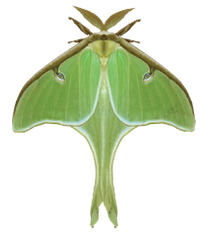 Lighthall Vineyards is a small, proud, low volume and high quality winery located in enchanting Prince Edward County, Ontario, Canada. All their wines are produced in a non-interventionist manner and fuelled by passion as hearty as our vines. They also make cheese, designed to pair with their wines.
Lighthall Vineyards is a small, proud, low volume and high quality winery located in enchanting Prince Edward County, Ontario, Canada. All their wines are produced in a non-interventionist manner and fuelled by passion as hearty as our vines. They also make cheese, designed to pair with their wines.
- White Wine
- Chardonnay
- Sustainable
- Dry
- Residual Sugar: 2.00 g/l
- Medium Bodied
- 750ml
- 13.00% alc./vol
About the Winery
Groupe Bellene
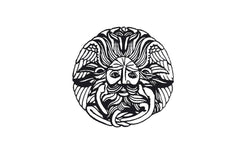
Led by Nicolas Potel in Beaune, Groupe Bellene is composed of the négociant arm Maison Roche de Bellene, the winery arm Domaine de Bellene, and a special back-vintage series under the Collection Bellenum label.
- Maison Roche de Bellene offers a complete range of wines, with an emphasis on individual terroirs from old vines of more than 40 years. All of the growers that Nicolas works with are either organic certified or sustainably farmed.
- Domaine de Bellene represents the wines that are produced and bottled from Nicolas Potel's private vineyard holdings.
- Collection Bellenum is a back vintage series that Nicolas Potel sourced from his friends in the region, offering a magnificent selection of bottled history. The wines have moved only twice in their lives, from the original cellar to Potel's and now to yours!
Nicolas Potel grew up at Volnay's Domaine Pousse d'Or, where his father worked. He trained abroad and returned home in 1996 to build a négociant business and started Maison Nicolas Potel, where he sourced grapes from good parcels, often working with the growers to improve the quality. By 2002, he was making 120 wines from 50 different appellations, and the rest is history!
- White Wine
- Chardonnay
- Sustainable
- Dry
- Medium Bodied
- 750ml
- 12.5% alc./vol
About the Winery
Lighthall Vineyards
 Lighthall Vineyards is a small, proud, low volume and high quality winery located in enchanting Prince Edward County, Ontario, Canada. All their wines are produced in a non-interventionist manner and fuelled by passion as hearty as our vines. They also make cheese, designed to pair with their wines.
Lighthall Vineyards is a small, proud, low volume and high quality winery located in enchanting Prince Edward County, Ontario, Canada. All their wines are produced in a non-interventionist manner and fuelled by passion as hearty as our vines. They also make cheese, designed to pair with their wines.
- White Wine
- Riesling
- Biodynamic, Natural
- Dry
- 750ml
About the Winery
Weingut Bianka und Daniel Schmitt
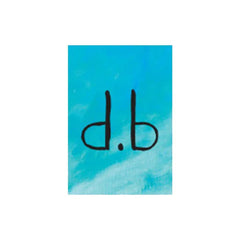
Bianka and Daniel took over the Weingut Schmitt in 2012 as the fourth generation to lead the winery. They are based in Wonnegau in the south Rheinhessen, centered in Flörsheim-Dalsheim. All of the vineyards are in Flörsheim-Dalsheim and neighbor villages Monsheim and Kriegsheim. Bianka and Daniel have been working their 16 hectares biodynamically for over a decade and are one of only 80 producers in Germany to be Demeter certified. They work with amphorae as well as used oak barrels and release a ‘Natur’ line that contains no added sulphur.
Here are Bianka and Daniel in their own words:
“Working biodynamically is a lifestyle that includes producing and spreading preparations in the vineyards as well as social interactions. The interactions between the life in the soil (like bacteria, mykorizen, plants as green cover and the vines) are composed with each other. Vines become stronger and get more vitality from a living soil, not from chemical treatments.
This active interaction in the soil life, the mutual strengthening of the plants result in stronger resilience for the vines which reflects the high quality of the grape, supports the presence of the individual soil types (calcareous soil covered by clay and partly loess, pebble). By working according to the biodynamic principles, biodiversity is supported as an automatic successor. As a result, the vineyards and the biotopes created by Bianka and Daniel offer a home for a diverse and local animal community.
After hand picking, the grapes are processed with or without skin maceration. And rest in wooden oaks (5000L, 3000L, 1200L, 600L) or clay amphorae (1200L, 300L) for at least 12 months on the whole yeast depot. The focus is on offering an optimal aging potential for the years to come. In order to support the collegial exchange and to enable operational training in the field of biodynamic agriculture, Bianka and Daniel and their winery are proud members of the Renaissance des Appellations, Demeter and Vinnatur associations.”
- Rosé Wine, Sparkling Wine
- Dornfelder, Portugieser
- Biodynamic, Natural
- Dry
- 750ml
About the Winery
Weingut Bianka und Daniel Schmitt

Bianka and Daniel took over the Weingut Schmitt in 2012 as the fourth generation to lead the winery. They are based in Wonnegau in the south Rheinhessen, centered in Flörsheim-Dalsheim. All of the vineyards are in Flörsheim-Dalsheim and neighbor villages Monsheim and Kriegsheim. Bianka and Daniel have been working their 16 hectares biodynamically for over a decade and are one of only 80 producers in Germany to be Demeter certified. They work with amphorae as well as used oak barrels and release a ‘Natur’ line that contains no added sulphur.
Here are Bianka and Daniel in their own words:
“Working biodynamically is a lifestyle that includes producing and spreading preparations in the vineyards as well as social interactions. The interactions between the life in the soil (like bacteria, mykorizen, plants as green cover and the vines) are composed with each other. Vines become stronger and get more vitality from a living soil, not from chemical treatments.
This active interaction in the soil life, the mutual strengthening of the plants result in stronger resilience for the vines which reflects the high quality of the grape, supports the presence of the individual soil types (calcareous soil covered by clay and partly loess, pebble). By working according to the biodynamic principles, biodiversity is supported as an automatic successor. As a result, the vineyards and the biotopes created by Bianka and Daniel offer a home for a diverse and local animal community.
After hand picking, the grapes are processed with or without skin maceration. And rest in wooden oaks (5000L, 3000L, 1200L, 600L) or clay amphorae (1200L, 300L) for at least 12 months on the whole yeast depot. The focus is on offering an optimal aging potential for the years to come. In order to support the collegial exchange and to enable operational training in the field of biodynamic agriculture, Bianka and Daniel and their winery are proud members of the Renaissance des Appellations, Demeter and Vinnatur associations.”
- White Wine
- Riesling
- Biodynamic, Natural
- Dry
- 750ml
About the Winery
Weingut Bianka und Daniel Schmitt

Bianka and Daniel took over the Weingut Schmitt in 2012 as the fourth generation to lead the winery. They are based in Wonnegau in the south Rheinhessen, centered in Flörsheim-Dalsheim. All of the vineyards are in Flörsheim-Dalsheim and neighbor villages Monsheim and Kriegsheim. Bianka and Daniel have been working their 16 hectares biodynamically for over a decade and are one of only 80 producers in Germany to be Demeter certified. They work with amphorae as well as used oak barrels and release a ‘Natur’ line that contains no added sulphur.
Here are Bianka and Daniel in their own words:
“Working biodynamically is a lifestyle that includes producing and spreading preparations in the vineyards as well as social interactions. The interactions between the life in the soil (like bacteria, mykorizen, plants as green cover and the vines) are composed with each other. Vines become stronger and get more vitality from a living soil, not from chemical treatments.
This active interaction in the soil life, the mutual strengthening of the plants result in stronger resilience for the vines which reflects the high quality of the grape, supports the presence of the individual soil types (calcareous soil covered by clay and partly loess, pebble). By working according to the biodynamic principles, biodiversity is supported as an automatic successor. As a result, the vineyards and the biotopes created by Bianka and Daniel offer a home for a diverse and local animal community.
After hand picking, the grapes are processed with or without skin maceration. And rest in wooden oaks (5000L, 3000L, 1200L, 600L) or clay amphorae (1200L, 300L) for at least 12 months on the whole yeast depot. The focus is on offering an optimal aging potential for the years to come. In order to support the collegial exchange and to enable operational training in the field of biodynamic agriculture, Bianka and Daniel and their winery are proud members of the Renaissance des Appellations, Demeter and Vinnatur associations.”
- White Wine
- Pinot Gris
- Biodynamic, Organic, Vegan-Friendly
- Dry
- Residual Sugar: 6.00 g/l
- Light Bodied
- 750ml
- 13.50% alc./vol
About the Winery
Domaine Muré
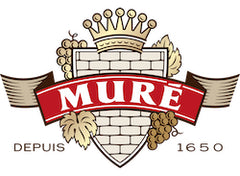
The Muré family has been winegrowers in the region of Rouffach since 1650. In 1935, Alfred Muré, René’s grandfather, bought 32 acres of family-monopole vineyard name Clos St. Landelin, an area that has been described as the best of Alsace Grand Cru since the 7th Century.
Today, René Muré, the 11th generation of the family, along with his children, Véronique and Thomas, are responsible for running their exceptional Grand Cru vineyard and neighbouring terroirs using biodynamic methods. Until this day, they persist in hand-picking every single grape, and focus on crafting wines that preserve the family’s credo. The resulting wines are some of Alsace's finest – powerful, elegant, and age-worthy.
Press Reviews
James Suckling
95 Points - Stuart Pigott, Senior Editor
At once ripe and rich, but with a lovely freshness and properly dry this is a stunning Alsace pinot gris with very ripe melon and citrus aromas, even a touch of orange blossom. Very long finely nunaced finish. From biodynamically grown grapes with Demeter certification. Drink or hold.
- White Wine
- Chardonnay
- Dry
- Residual Sugar: 2.00 g/l
- Medium Bodied
- 750ml
- 13.50% alc./vol
Press Reviews
Vinous Media
90 Points - Neal Martin
The 2022 Chablis Bougros Grand Cru is aged for 16 months in stainless steel and 500 litre barrels. It is pretty neutral on the nose and doesn't really engage the senses as I would have liked. The palate is balanced with a fine bead of acidity. It's taut and fresh, with a touch of sour lemon towards the finish. It's not bad, although its more Premier Cru than Grand Cru, to be honest. Tasted blind at the BIVB tasting in Chablis.
- Red Wine
- Pinot Noir
- Sustainable
- Dry
- Medium Bodied
- 750ml
About the Winery
Cordero San Giorgio
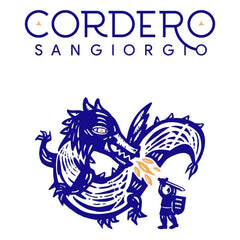
Cordero San Giorgio is a new beginning in Oltrépo-Pavese for three siblings who grew up surrounded by their family’s vines at the legendary Vietti Estate in Castiglione Falletto in Barolo. The siblings Francesco, Lorenzo, and Caterina Cordero, are grandchildren of Luciana Vietti & Alfredo Currado, one of the pioneers of the first Barolo crus and considered the “father of Arneis.” Their father is Mario Cordero, Alfredo and Luciana’s son-in-law, who was the company’s co-owner from the beginning of the ‘80s until 2016 when it was sold.
Cordero San Giorgio is located in Santa Giuletta, a village sitting on the first hilly belt of the territory, an area made up of valleys that fan out over the Po Valley with steep slopes and thick ridges. The composition of the soil makes their site particularly suitable for the production of Pinot Nero, making it possible to obtain wines with maximum varietal expression and a strong territorial identity.
The Oltrepò Pavese is a hilly triangle of land in Lombardy, embraced by Piedmont, Liguria, and Emilia-Romagna. A territory dedicated to the cultivation of vines and the culture of wine for centuries: a land of both cultural and gastronomic encounter and exchange. Cordero San Giorgio is in the town of Santa Giuletta, and focuses on working with Pinot Nero, Pinot Grigio and Chardonnay.
- Fortified Wine, Red Wine
- Sousón, Tinta Roriz, Touriga Francesa
- Sustainable
- Dry
- Residual Sugar: 75.00 g/l
- Full Bodied
- 750ml
- 19.00% alc./vol
Press Reviews
Wine Advocate
94 Points - Mark Squires
The 2018 Vintage Port is a field blend, which is mostly represented as Touriga Franca (30%), Touriga Nacional (20%) and Tinta Roriz (15%), with dollops of others for the rest. It is unoaked and comes in with 86 grams of residual sugar. This is sourced from Quinta Vale d’Agodinho in the Ferradosa Valley, planted in 1983. Dry, stern and very serious, this projects a lot of power, with the fruit well in second place just now. Tight and needing to unravel, this is built to age, which is generally a good thing for Port. This is going to be one that will require a little extra patience, even if it is true that people are diving into Vintage Ports younger than ever these days. It should age and develop well. In fact, three days later, it showed off its good fruit more, while still finishing with firmness. As noted, it's a very dry and serious style, so don't expect a fruit bomb. If that style is your style, this is superb, with plenty of room to improve in the cellar. Its purity is a plus.
- Red Wine
- Sangiovese
- Dry
- Residual Sugar: 3.00 g/l
- Full Bodied
- 750ml
- 14.00% alc./vol
About the Winery
Cortonesi

“I’m a lucky man who has been given the opportunity to realize my dream and continue my family’s efforts making wine in the land where I was born.” – Tommaso Cortonesi
Tommaso is third-generation winemaker at Cortonesi that owns some of the most prized vineyards in the north and south-east of Montalcino. Favourable geography, rocky soils, and ingenious winemaking all come together to create some of the region's deepest and most elegant Brunello wines.
The Cortonesi family has been making wine since the 1970s. At first, wines were made to be enjoyed by family, friends and neighbours, but then in 1985, Cortonesi had gained enough traction within their community that they began to offer their wines commercially. Today, Cortonesi remains a family business that continues to work according to tradition, while employing modern technologies to the enhance the quality of their production.
Lovers of Sangiovese must experience “La Mannella”, a collection of wines exclusively sourced from Cortonesi's private vine land. This farm covers 56 hectares, eight of which are devoted to the production of some of the world's most coveted and age-worthy Brunello di Montalcino.
Press Reviews
Gardini Note: Brunello di Montalcino 2019 Report
99+ Points - Luca Gardini
One of the two fundamental versions of Brunello by Cortonesi, the emblematic freshness of Sangiovese from the north-western area. Nose with notes of cranberry, with touches of cinnamon and ginger. The drink is brackish-iodized, juicy, with a return of notes of ginger and slightly citrus.
- Red Wine
- Gamay
- Biodynamic, Sustainable, Vegan-Friendly, Volcanic
- Dry
- Residual Sugar: 2.00 g/l
- Medium Bodied
- 750ml
- 13.50% alc./vol
About the Winery
Stéphane Aviron

Stéphane Aviron can be considered a pioneer in his approach to winemaking in Beaujolais, however he would just tell you that he’s simply returning to the traditional practices that have always made fantastic Gamay wines. Sustainable viticulture, extremely old vines and classic Burgundian techniques. He focuses on the Beaujolais village crus, all but forgotten gems of vineyards when the nouveau craze took over, which are the best sites for unique, expressive and terroir driven wines. All of the fruit is sourced from old vines (40+ years), so seeing Vieilles Vignes on the label is a rite of passage, not a privilege. Authenticity and a distinctly Beaujolais style of winemaking is what sets Stéphane apart from the rest.
Press Reviews
WineAlign
92 Points - David Lawrason
This is a very ripe, supple and smooth gamay from a 'cru' village known to make somewhat heartier examples. The nose is soft but fragrant and seductive with strawberry/raspberry compote, red rose and subtle earth. It is medium bodied, elegant and almost glossy smooth with very fine tannin. The length is very good to excellent. Delicious. Chill lightly.
- Red Wine
- Cabernet Sauvignon
- Sustainable
- Dry
- Residual Sugar: 3.00 g/l
- Full Bodied
- 750ml
- 14.50% alc./vol
Press Reviews
Winestate Magazine
98 Points
A lovely vibrant classic Coonawarra cabernet, dark crimson in colour with purple hues and with brooding rich fruit characters, plenty of oak and nice level of tannins
Wine Orbit
96 Points - Sam Kim
Offering fruit purity and power, the wine shows crème de cassis, violet, cedar, subtle tobacco and mixed spice aromas on the nose, leading to a gracefully rich palate offering firm structure and harmony. Wonderfully styled and expressive with a lengthy sturdy finish. At its best: 2023 to 2035.
- Red Wine
- Cabernet Sauvignon
- Sustainable
- Dry
- Residual Sugar: 3.00 g/l
- Full Bodied
- 750ml
- 14.50% alc./vol
Press Reviews
Wine Orbit
93 Points - Sam Kim
It's varietally expressive and well defined by firm structure, showing blackcurrant, tobacco, pepper spice and cedary oak characters on the nose. The palate has richness as well as complexity, offering terrific drinking. At its best: now to 2034. A lighter, pretty and elegant style of wine full of floral lifted sweet red fruits with darker fruit undertones and hints of licorice supported by attractive velvety tannins
- Red Wine
- Sustainable
- Dry
- 750ml
- White Wine
- Vidiano
- Sustainable
- Dry
- 750ml
- Red Wine
- Grenache
- Organic, Sustainable
- Dry
- 750ml
- 12.5% alc./vol
About the Winery
Domaine Peter Sichel
Tucked away in a hidden valley in a remote corner of the Languedoc-Roussillon lies a truly special place: the village of Cucugnan. Historically, there was much wine produced here, given its isolated location, but gradually the local people moved away to the towns. There are now just 130 people living in the village. As the vineyards were left mostly abandoned, the local flora and fauna were permitted to thrive. Cucugnan became a unique area, full of biodiversity, which shines through in the rare plants and flowers that grow there today.
Peter Sichel (of the Bordeaux négociant family) first discovered this valley on a road trip with a friend in the 1960s. He was so spellbound by the place that he bought a house there and, in 1988, planted a vineyard. The project grew, albeit slowly, but the arrival of Peter’s thoughtful and environmentally inspired grandson, Alexander Sichel, has turned the Domaine Peter Sichel project completely around.
Since 2019, Alexander has converted the estate to organics and biodynamics, achieving organic certification in 2022. Furthermore, he is committed to supporting polyculture in and around the vineyards, even enlisting the help of a PhD programme from a Dutch university to identify the incredible array of plant life in the vineyard.
Alexander’s grandfather planted the vines between 30-40 years old. Parcels of Grenache, Syrah, Carignan, and Roussanne lie mostly on the best slopes of the valley. Starting from 350-500 metres’ altitude, these slopes have very little topsoil; the roots go almost straight into the bedrock. The viticultural team here has done much work to focus on the unique characteristics of each parcel to express the terroir of this stunning valley in the most authentic way.
- Red Wine
- Dolcetto
- Biodynamic, Natural, Organic, Vegan-Friendly
- Dry
- Medium Bodied
- 750ml
- 13% alc./vol
About the Winery
Punset

While the vineyards that form Punset have been farmed by the Marcarino family for generations, it is truly thanks to Marina and her incredible energy that the estate is how it is nowadays. In the 1980s, she decided to pursue organic farming – a demanding choice that was rewarded by becoming the first estate to receive the organic certification in Italy. Her passion for the soil and the environment led her to embrace biodynamics and the agronomic philosophy of Manasobu Fukuoka. From one of the healthiest vineyards in Italy, Marina crafts wines that brim with life, energy, and pure terroir.
Known for the very first certified organic Barbaresco of Italy, Marina continues to show the world that you can preserve tradition and think of the future simultaneously.
- White Wine
- Chardonnay
- Sustainable, Volcanic
- Dry
- Residual Sugar: 2.00 g/l
- Medium Bodied
- 750ml
- 13.00% alc./vol
Press Reviews
James Suckling
96 Points
Complexity and lots of stamina and verve here! Smoky lemons, nougat, ginger and flint provide a very flavourful palate. Intense and substantial on the palate, but still elegant and nuanced, with a hint of phenolics at the end. Long, focused finish. Think fine Meursault. Drink or hold.
Robert Parker
95 Points - Luis Gutiérrez
The 2020 Selección de Parcelas Los Primos Chardonnay was cropped from a warm and dry vintage, but in Traiguén in the south, it is not as warm as in the central valley of Chile. The grapes were harvested the first half of April; they harvested earlier and finished with more alcohol, still a moderate 13.5%, from a year of more body and rounder wines but without heat. The wine kept a pH of 3.16 and 6.9 grams of acidity. This also makes the wine a little more Burgundian, more Meursault than Chablis or Puligny, tasty, spicy with a tad more oak (all the new barrels for white are 400-liter ones, 38% of them new in 2020), because in warmer years there is a little more extraction from the oak. This is the warmest vintage so far, but the wine is still bone dry and there is no ripeness; but there's more weight and width. The wines have to show the differences of the climate conditions each year... 4,069 bottles were filled in July 2021.
- White Wine
- Pinot Gris
- Sustainable
- Dry
- Residual Sugar: 8.00 g/l
- Medium Bodied
- 750ml
- 13.50% alc./vol
About the Winery
Invivo

Invivo's journey began when two Kiwi friends, Rob and Tim, met in a London bar, determined to revolutionize the wine industry by creating a strong brand that defies tradition. Since 2008, Invivo has become a leading producer in New Zealand, winning over 600 medals and expanding operations across several countries. Through customer focus and innovation, including being one of the Southern Hemisphere's largest crowdfunded companies, Invivo has rapidly grown. Rejecting traditional winemaking norms, Invivo brings elegance from the old world to their original range, featuring Sauvignon Blanc, Pinot Gris, Chardonnay, Pinot Noir, and Rosé. Their collaborations with Graham Norton and Sarah Jessica Parker have further elevated their profile, embodying Invivo's vision of bringing people together to create greatness.
Press Reviews
James Suckling
90 Points
A perfumed nose of jasmine, fresh flowers, apricots and peaches. Medium-bodied with a steely mineral character. Fresh and clean with a crisp finish. Drink now.
- Vermouth Wine
- Carignan, Grenache
- Natural, Organic, Vegan-Friendly
- Dry
- Full Bodied
- 750ml
- 17% alc./vol
About the Winery
Domaine Frédéric Brouca

Frédéric grew up in Normandy and met his Canadian wife Elaine at university in Lille, Northern France. They live a nomadic lifestyle (Canada, India, Singapore and USA) though Frédéric spends about half of his time in Faugères. Since early age, Frédéric had a calling for farming and the fierce desire to become a winegrower. After completing a Masters Degree in Finance in 2001, Frédéric went back to college for a Sommelier diploma and started his career as a Burgundy wine broker.
In late 2012, Frédéric and Elaine were fortunate to take over 25 acres of old vines in Faugères, organically farmed for twenty years and deeply rooted in schist soils.
2013 was the inaugural vintage for Domaine Frédéric Brouca. In his modest winery in the village of Laurens, Frédéric is creating a new vision for Faugères wines; fresh, vibrant and made without artifice. Nothing revolutionary, simply returning to our grandparent's ideology of farming and winemaking to craft 'Vins Vivants'. The Faugères Appellation is in the heart of Languedoc in the Hérault department. Here, winemaking dates back to the Greek times and was developed during the Roman Era. It wasn't until the early 1900's, however, that the wines became more widely known for its unique schist soils and moderate Mediterranean climate. These villages are heavily reliant on wine as an important part of their culture and economy.
The area is stunning with mountain views and close proximity to the Mediterranean Sea (20 miles / 30 kms). Faugères has a long history of responsible farming. It boasts the highest percentage of organic vineyards for any AOC in all of France with almost 50% of farmers making the choice.




























